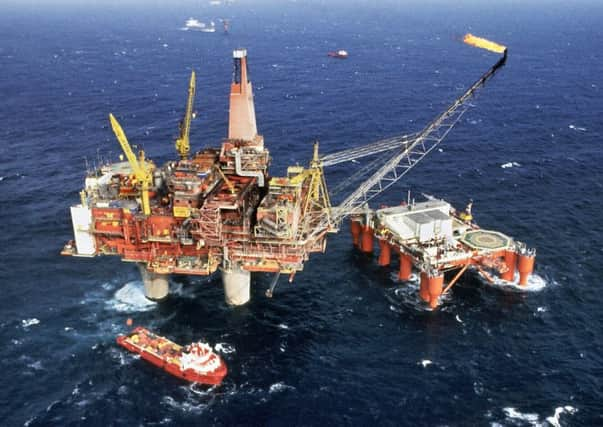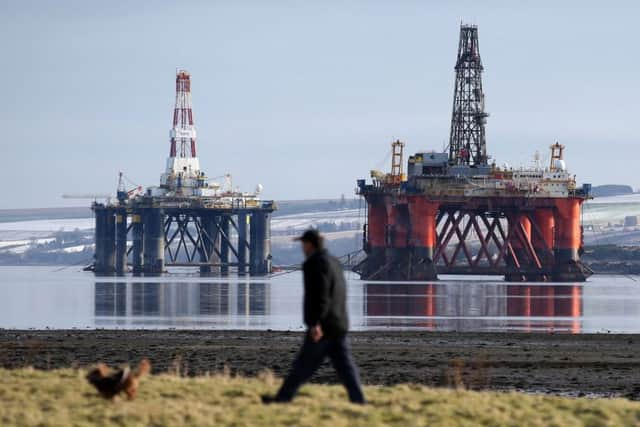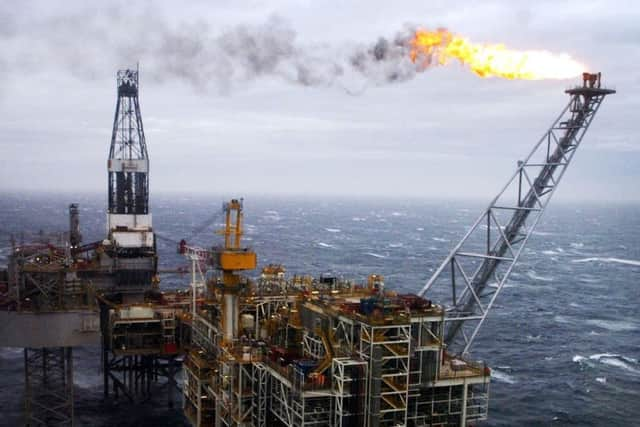Oil and gas companies must look '˜beyond efficiency'
This article contains affiliate links. We may earn a small commission on items purchased through this article, but that does not affect our editorial judgement.


The embattled oil and gas industry is “at a tipping point” when it might be able to move from survival mode to strategic recovery, but 2017 will be a decisive crossroads.
Decommissioning work in the North Sea – a region laid low by a slump in oil prices in the past two years – takeovers, and the move of private equity into the energy sector could be key drivers of such a recovery, says a report from accountancy and business services giant EY.
Advertisement
Hide AdAdvertisement
Hide AdThe more upbeat report on prospects for the oilfield services industry comes as oil major BP yesterday unveiled much reduced losses of $999 million (£803m) in 2016 compared with a massive $5.2 billion loss in 2015.


BP also clawed its way back into the black in the fourth quarter, with profits of $72m against losses of $2.2bn a year earlier, as oil prices have recovered to above $50 a barrel. EY says the stabilisation of the oil price in the $50 to $60 region gives grounds for “cautious optimism”.
But the group’s review of the UK oilfield services industry warns: “As the UK’s oil and gas sector begins to show signs of recovery from the toughest year on record, it is vital that the oilfield services (OFS) industry makes a permanent shift in strategy from short-term survival to long-term success.”
The report reveals that the annual turnover of the UK OFS sector fell 12 per cent to £35.7bn in 2015 from £40.6bn in 2014 – the first decline since the EY review started in 2008.


The damage was compounded by it being the first time that turnover of each of the oilfield services’ supply chain categories all fell in one year – reservoirs, wells, facilities, marine and subsea, and support and services.
However, Derek Leith, EY partner and head of oil and gas tax, said: “With the worst of the downturn over and signs of recovery becoming more prevalent, the UK oil and gas sector has reached tipping point with the supply chain playing a pivotal role. As such, the future viability of the oilfield services industry will be largely determined by the decisions and actions taken by leaders in 2017.”
Leith said it was essential that oilfield services companies persevered with “efficiencies” brought in as a result “of the unforgiving low oil price environment” and not abandon them as the price recovered.


Advertisement
Hide AdAdvertisement
Hide AdBut he added: “It may be that the current oil price will prevail for the foreseeable future, so the oilfield services industry must push beyond cost reduction to higher margin sustainable business. This needs to be characterised by new commercial relationships, new technology and innovation.”
EY’s says export activity in the sector fell £1.7bn in 2015 – the latest year for which figures are available – as a result of a contraction in international work although this was “not as pronounced” as the falloff in North Sea activity.
But looking on the brighter side, Leith said there was scope to boost export activity through expertise in decommissioning activity and targeting the right growth markets.
“Decommissioning offers the UK oilfield services industry an excellent opportunity to grow a significant line of business with huge export potential,” he said. “The UK supply chain must offer high quality, cost-effective goods and services if they are to succeed in the fiercely competitive global market.


“Significant co-ordination, collaboration and support will be needed in order to help deliver an optimum decommissioning solution for the UKCS and to take advantage of an important export opportunity in the years to come.”
EY says that “consolidations and strategic alliances” will be a leitmotif of 2017, particularly in high-cost areas such as marine and subsea.
The report says consolidation is likely to be driven by the bigger energy players, with deeper pockets and a priority of diversification to spread operational risk. It says it would be “premature” to suggest that capital spending will recover dramatically in 2017, but there were positive signs for modest increases.
Shell offloaded a raft of its North Sea assets last week. But the report said that “new entrants have not been averse to acquiring assets with development potential”.
Advertisement
Hide AdAdvertisement
Hide AdLeith said: “There are encouraging signs in the form of new sources of capital taking ownership of assets, including the eventual arrival of much anticipated private equity investment in the second half of 2016.”
He added that such investment “shows faith in the long-term prospects for profitable recovery of oil and gas in the North Sea”.
